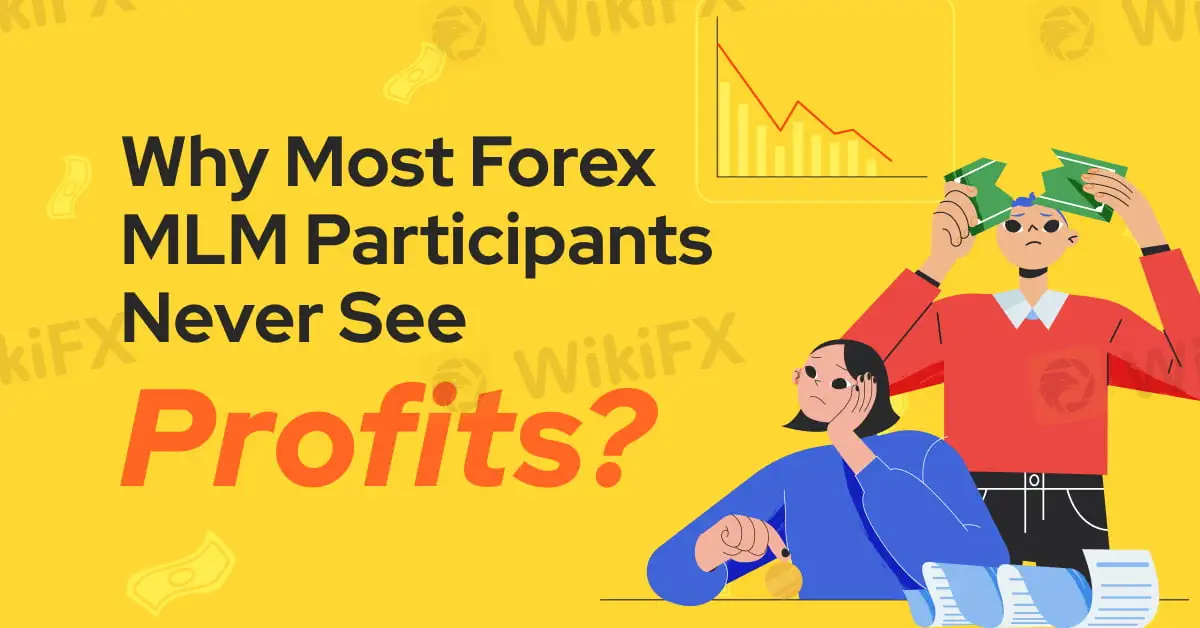Why Most Forex MLM Participants Never See Profits?
Abstract:Forex-related MLMs have garnered significant attention, often for the wrong reasons. These Multi-Level Marketing (MLM) schemes typically promise participants substantial profits through foreign exchange (forex) trading, but the reality is often quite different. Here's a closer look at the phenomenon:

Forex-related MLMs have garnered significant attention, often for the wrong reasons. These Multi-Level Marketing (MLM) schemes typically promise participants substantial profits through foreign exchange (forex) trading, but the reality is often quite different. Here's a closer look at the phenomenon:

Forex-related MLMs operate on a classic pyramid scheme model, where participants earn commissions not only from their own trading but also from recruiting others into the program. In theory, this creates a lucrative income stream for those at the top. However, the vast majority of participants, especially those at the bottom of the pyramid, struggle to make any significant profits. This structure encourages aggressive recruitment over actual trading success.

One of the hallmarks of forex-related MLMs is their tendency to make exaggerated claims about the potential for profit. They often showcase testimonials from top earners, flaunt luxurious lifestyles, and use high-pressure sales tactics to convince newcomers that they can achieve similar success. In reality, most members do not see the promised returns and are left with little to show for their investments.

Forex-related MLMs often rebrand themselves regularly in response to increasing scrutiny from regulators and negative media coverage. The rebranding efforts often include tweaking their marketing strategies and product offerings to avoid legal repercussions. However, the core business model remains largely the same, with an emphasis on recruitment over actual forex trading education.

Forex-related MLMs have faced numerous investigations and legal challenges from regulatory bodies. The U.S. Commodity Futures Trading Commission (CFTC) and other international regulators have scrutinized these companies for misleading practices and the unrealistic promises made to participants. Despite these challenges, many such companies continue to operate, often shifting focus to regions with less stringent regulatory oversight.

For most participants, joining a forex-related MLM results in financial loss rather than gain. The complex compensation structures, high costs of entry, and the need to recruit constantly create an environment where only a small percentage of individuals, usually those at the very top, see any real profits. The majority, lured by the promise of easy money, often end up disillusioned and financially worse off than when they started.
Forex-related MLMs represent a troubling trend in the financial world. While they claim to offer education and opportunities in forex trading, their true focus lies in recruitment and the perpetuation of a pyramid-like structure. Potential participants should exercise caution, thoroughly research these schemes, and be aware of the high likelihood of financial loss.

Read more

WikiFX Broker Assessment Series | Lirunex: Is It Trustworthy?
In this article, we will conduct a comprehensive examination of Lirunex, delving into its key features, fees, safety measures, deposit and withdrawal options, trading platform, and customer service. WikiFX endeavours to provide you with the essential information required to make an informed decision about utilizing this platform.

Italy’s CONSOB Blocks Seven Unregistered Financial Websites
Italy’s CONSOB ordered seven unauthorized investment websites blocked, urging investors to exercise caution to avoid fraud. Learn more about their latest actions.

STARTRADER Issues Alerts on Fake Sites and Unauthorized Apps
STARTRADER warns against counterfeit sites and apps using its brand name. Protect yourself by recognizing official channels to avoid fraudulent schemes.

Dukascopy Bank Expands Trading Account Base Currencies
Dukascopy Bank now offers AED and SAR as base currencies for trading, expanding options for clients to fund accounts in Dirham and Riyal.
WikiFX Broker
Latest News
Revolut X Expands Crypto Exchange Across Europe, Targeting Pro Traders
Broker Review: Is Exnova Legit?
Capital.com Shifts to Regional Leadership as CEO Kypros Zoumidou Steps Down
Crypto Scammer Pleads Guilty in $73 Million “Pig Butchering” Fraud
CWG Markets Got FSCA, South Africa Authorisation
Amazon launches Temu and Shein rival with \crazy low\ prices
CySEC Warns Against Unauthorized Investment Firms in Cyprus
Why Even the Highly Educated Fall Victim to Investment Scams?
Warning Against Globalmarketsbull & Cryptclubmarket
FBI Raids Polymarket CEO’s Home Amid 2024 Election Bet Probe
Rate Calc
